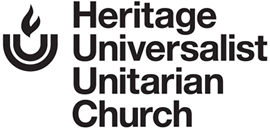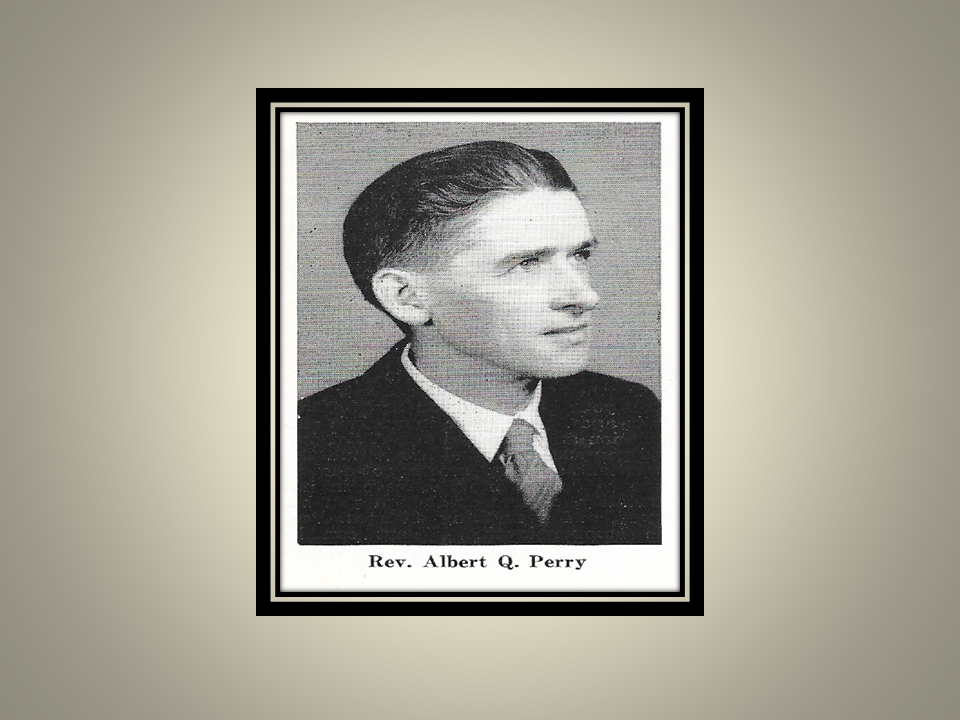by Mike Roberts, HUUC Church Historian
The past two months, we have reviewed the thoughts of two previous ministers to our church, Anthony Beresford and Elinor Artman. Now, we look back to thoughts expressed by Albert Q. Perry who presented his sermons in a monthly journal entitled “The Religious Pioneer.” Perry served our congregation from 1952 to 1961.
In June 1955, we get his reaction to a Look Magazine article entitled “What Are You Worried About?” The article stated that half the people polled said economic problems were their biggest worry; about a quarter worried about health issues, while family relationships were the next biggest worry.
Perry responded in his sermon, “I suspect that many of you would react to this by saying that all of this worrying is a waste of time and the lucky ones were the ten percent who had no worries at all. That, however, is not the point of my sermon this morning. My intent in all of this is not so much to suggest ways of dealing with these worries, but primarily to discover from them certain information about ourselves that we may gain the necessary bases of knowledge upon which to build more successful and significant lives. One kind of worry is not better than another, but all worry is revealing as to where one’s heart is, what one’s major interests are.”
At the beginning of the year 1956, Perry commented on predictions that advanced technology and modern business practices would make life much easier for the next generation. Perry said that while he believed that to be true, he questioned the negative effect that would have on the spiritual and religious sectors of our lives. He indicated that, “Sometimes, I think that the emphasis of much of our modern, usable religion is upon exploiting our powers of the spirit to increase our material productivity. The real need from religion is that we may learn to use our leisure which a productive industry is making available for cultural and spiritual growth. With the easier satisfaction of our physical needs, we must at least add to our heavenly hopes the desire to experience immortal values here and now. Heavenly hopes are not sufficiently enticing in a world where poverty and pain can be rarities rather than the rule.”
On February 5, 1956, Reverend Perry delivered a sermon on “The Seven Jewels of Living.” He presented his “jewels” with the understanding that there may be many more than seven but that might evoke a three-hour sermon. Space restraints don’t allow for his discussions of each of the seven, but they may provoke a bit of self-analysis amongst our readers.
The seven jewels are:
- A Breadth of Interest Which is not Superficiality.
- The Imagination that is Practical.
- The Integrity Which has Tolerance for Others if not for Self.
- That Confidence Which is not Egotism but Faith.
- The Affection for Others Which is not Destructive of Their Freedom.
- That Patience Which is Neither Dullness nor the Admission of Defeat.
- That Sense of Humor Which is Born of Kindness.
On February 26, 1956, Reverend Perry delivered a sermon on “The Willing Heart.” His concluding paragraph stated, “A willing heart, a desire to do the job, a concern for the larger goods, and more noble goals are essential aspects of skill and service. I care not the job on which you are engaged—be it teaching, or cooking, or selling, or painting—first stop and consider the recipients of your effort. Only as you make yourself aware of their worth and accept their need, can you hope to serve them or satisfy yourself.”
For the Easter service of 1956, Perry took on the topic of “Believing in Immortality.” During that sermon, he observed,
“A belief in immortality certainly ought to change our attitude toward others. One of the most interesting aspects of the life of John Murray, who was one of the early Universalist preachers, was the change which came over him when he became convinced of universal salvation. Previously, the people of the slums had been beneath his notice. They were dirty, diseased, disreputable lost souls from whom you diverted your eyes and thoughts. When he concluded that even these were loved by God and of eternal value, he went down into the horrible slums of London with joy at his opportunity to show his concern for those whom God had made of such value.
Every person you meet will take on a new dignity and glory when you believe him to be immortal. It is hard to turn aside from any opportunity to serve when you realize that your attitudes and your acts will have continuing influence.
The fear of death, the fear of eternal punishment, or the desire for immortal reward, are as nothing compared to the ever-present awareness of one immortal nature as an inspiration for creative, moral, loving lives. Those are outside influences, but the belief that one is immortal is a positive, inner force.”
In another sermon presented in October of 1955, Reverend Perry spoke on “The Content of Confidence.” While he viewed the issue with a broad perspective, he made the point that active church participation can serve as a catalyst for confidence building. He remarked that, “Confidence is not only desirable in every area of life, but it is something for which we may work, and your confidence in yourself is something to which the church may contribute. Out of the group in which there is respect for all, our participation in the choosing of goals and ideals and purposes; out of the development of adequate skills and the gaining of necessary knowledge; and out of small successes; we build the confidence in ourselves which enables us to be creative.”
Image source: Mike Roberts

